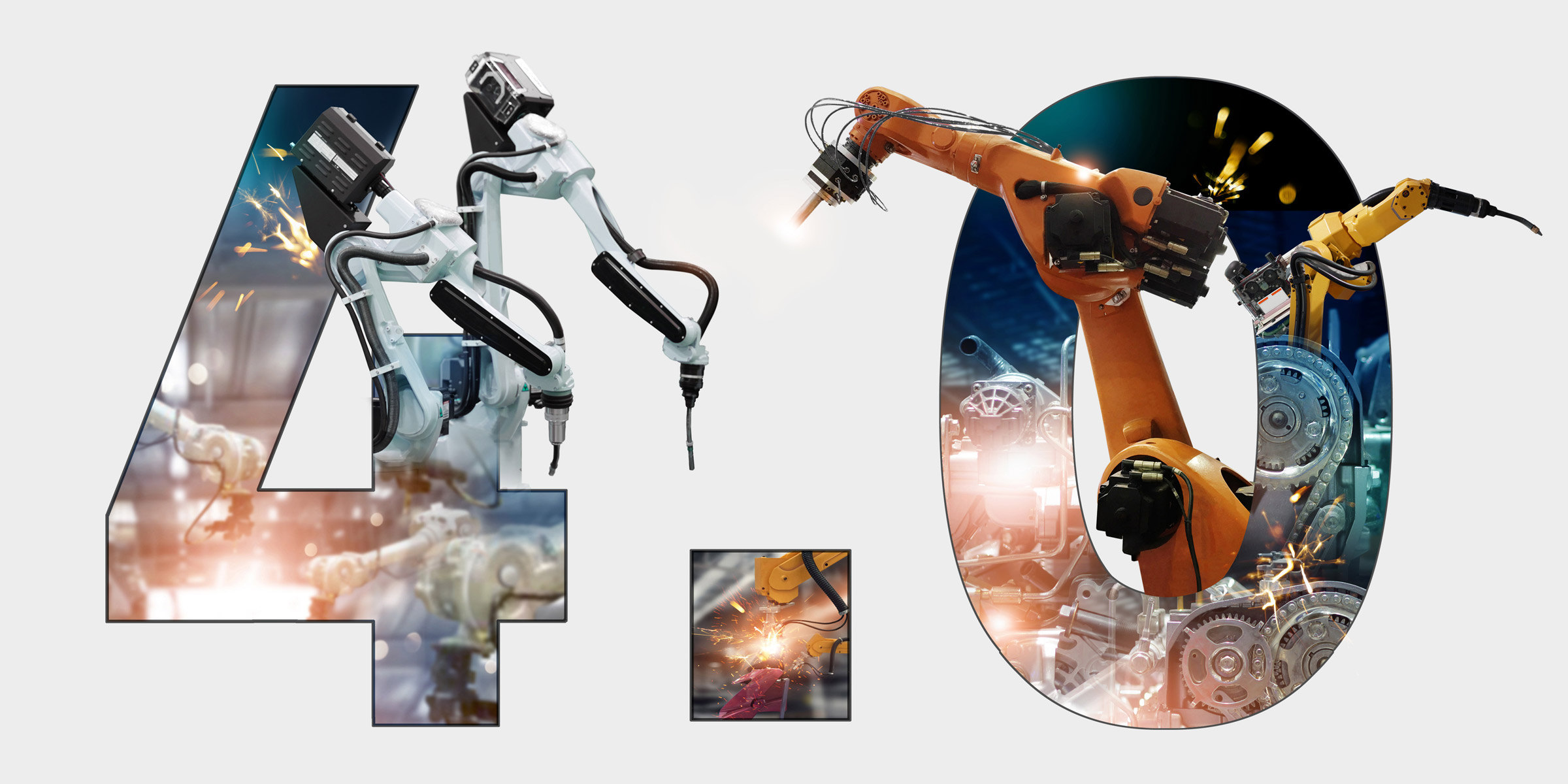Industry 4.0 has arrived, with its focus on interconnectivity, automation, machine learning and real-time data promising to deliver a new golden age for manufacturing. But there’s one big problem: the rate of innovation is outpacing employees’ skills.
The skills shortage that’s hit many industries is especially acute in manufacturing, where an existing skills gap was exacerbated by the pandemic. According to Deloitte, US manufacturing alone is expected to have 2.1 million unfilled jobs by 2030. Elsewhere the firm’s research shows that attracting and retaining a quality workforce is a top focus for 83 percent of manufacturers, with almost 45 percent of manufacturing execs being forced to turn down business opportunities due to lack of workers.
“While we have seen a greater number of apprenticeships and university courses being made available, it takes a few years before these people become productive and independent,” says Antony Bourne, SVP of industries at IFS. “And if you layer on top of that the fact that there has been a tremendous exodus of people in jobs in the last few years, and in combination with the pandemic, the resulting number of people that make it to being ‘productive’ is unfortunately low.”

A hybrid working scenario needs to be offered by companies today to bring them back to the shopfloor – Anthony Bourne, IFS
So what’s the solution to the Industry 4.0 skills gap? There’s no silver bullet, unsurprisingly. But it is understandable that given Industry 4.0’s focus on digitalisation, organisations will look to technology to help them plug their skills gaps and transform workplaces. With the considerable gulf between supply and demand, the conversation among software vendors has fully shifted to automation, which they tout as a panacea to current workforce burdens.
Research from Oracle NetSuite shows that more than half of execs and managers in manufacturing said their staffing needs were for workers with specific expertise. At NetSuite’s annual SuiteWorld conference, the company unveiled SuitePeople Workforce Management, with founder and EVP Evan Goldberg highlighting the importance of optimising access to workers in the current economy.

In a tight labour market, organisations need to elevate the management of their workforce to be competitive – Evan Goldberg, Netsuite
“In a tight labour market, organisations need to elevate the management of their workforce to be competitive,” said Goldberg.
Indeed, with the global economy heading for recession, automation will accelerate as companies adopt new technologies and attempt to redesign their workflows to increase productivity, according to Laura Petrone, principal analyst in thematic research for GlobalData.
However, she believes the impact of automation will be felt differently across job categories and disproportionately affect workers with lower levels of education. According to a 2020 report by the CBI, nine in 10 UK employees will have to reskill by 2030 due to the pandemic accelerating automation.
“For example, low-skilled or routine jobs like elementary sales jobs feature among the most exposed to the risks of automation,” Petrone tells ERP Today. “When it comes to higher skilled sales roles, technologies like artificial intelligence (AI) will be used mainly as a support for sales representatives and as an enhancement for their consulting tasks.”
The data challenge
While IT automation seems like an effective solution to relieving the skills shortage, leveraging the power of data will be central to automating processes in manufacturing. But as we know, more data equals more complexity. The big challenge is for firms to harness that data effectively.
“In the early 2000s, ERP implementations soared. As manufacturers embraced - and continue to capture and accumulate – data from new technologies such as robotic process automation, machine learning and artificial intelligence, they are generating an explosion in the data available to them,” says Nick Mitchell, VP and country manager UK&I, Celonis. “And while, in theory, this data can help manufacturers streamline inefficient processes, improve their products and innovate, more data actually results in more complexity.”
“Process mining and execution management can turn challenges like an overabundance of data and analytics into opportunities. They will be key to harnessing the possibilities of Industry 4.0, helping organisations visualise internal processes and ultimately identify and prioritise inefficiencies across the manufacturing process, from the start of a production order through to delivery. For that, new approaches are required.
“The factory workers of the future will evolve to be skilled knowledge workers at the forefront of reassessing business processes.”
A glimpse of the factory of the future can be seen in Infor’s recent long-term strategic partnership agreement with the National Manufacturing Institute Scotland (NMIS). Infor’s investment will underpin the development of Model Digital Factory Demonstrators for the NMIS Digital Factory environment at the new NMIS headquarters, all 11,500m² of it.
Operated by the University of Strathclyde, NMIS is a group of industry-led manufacturing research and development centres with a network of partners brought together to boost the manufacturing community.
Anwen Robinson, Infor GM and SVP for UK and Ireland, says that in addition to its investment in the physical Model Digital Factory, Infor is also investing in developing core skills aligned to the goals of NMIS.
“We will be working collaboratively with the NMIS Manufacturing Skills Academy and the wider University of Strathclyde, the operator of NMIS, to develop micro-credential courses that advance their programmes around manufacturing, bringing together aspects such as the use of data science principles within manufacturing,” she explains to ERP Today.

We’ll sponsor a number of doctoral placements, working on circular manufacturing, net zero strategies and AI – Anwen Robinson, Infor
“We will also be sponsoring a number of multi-year doctoral placements, working on solving core manufacturing problems around areas such as energy visibility and reduction, circular manufacturing, net zero strategies and how AI can be used to solve new challenges.”
It’s a people thing
It is also important, though, to realise that technology doesn’t hold all the answers. An onus on digital transformation leaves little room for one of the most important factors: people.
Jordi Ferrer, VP and general manager UK&I at ServiceNow says that the human element is the part often forgotten in the boardroom. But Industry 4.0 is not just a technological change, it’s a change in the way people work - and that requires new skills.
“If an organisation invests in emerging technologies, such as machine learning or process automation, they also need to invest in people to take action on the business insights generated by the technology,” says Ferrer.
Echoing Celonis’ Mitchell, the VP knows an overabundance of data can only bring complexity and little else. The key is to ensure workers are able to harness data correctly.
“It’s no use spending vast sums of money on technology that captures data without having a team of people prepared to analyse and use it to implement change. Without that, the initial investment will be wasted.”
‘The old way isn’t the only way’
Similarly, aside from technology and an obvious emphasis on training and skills for Industry 4.0, it is important to consider the societal and cultural aspect of filling the skills gap.
IFS’ Bourne points out that people have become used to working from home over the last couple of years, for example. Therefore, “a hybrid working scenario needs to be offered by companies today to bring them back to the shopfloor”.
In agreement with this is Magnus Falk, CIO advisor at Zoom, who says those in the knowledge economy adapted to remote work in the early months of the pandemic. In much the same way, workforces in Industry 4.0 will adapt to a different way of interacting with the rest of the business.
“By changing the model of employment, employers can attract and retain staff as those close to retirement choose to do less, or those with caring responsibilities cope with life events. Employers that successfully allow people to fit work around life, rather than the decades old model of fitting life around work, will have access to deeper pools of talent.”

Apprentices can be employed, trained and mentored from where they choose to be, enabling an onsite workforce through the offsite support – Magnus Falk, Zoom
Falk says the key to new employment models is cultural change, accepting that the old way isn’t the only way, underpinned by enabling technology and updated people policies.
“With the talent secured, more apprentices can be employed, trained and mentored from where the talent chooses to be, enabling an onsite workforce through the offsite support.”
Skilled labour the ‘last mile’ of Industry 4.0
The global Industry 4.0 market is expected to reach $132.11bn in 2022, growing to around $155.76bn by 2030. Addressing the skills shortage is a priority for organisations.
But more importantly, the factory workers of the future will need different skills from those in previous decades.
As Ferrer notes: “Business leaders need to arm them with the right training and technology to turn them into knowledge workers who can deal with the information generated by Industry 4.0. Skilled labour is the ‘last mile’ of Industry 4.0 – and without it, the new phase in the Industrial Revolution will not fully realise its promise.”

Business leaders need to arm employees with the right training and technology to turn them into knowledge workers – Jordi Ferrer, ServiceNow

Delving deeper into the NMIS Digital Factory
By Giacomo Lee
As announced in October, Infor’s partnership with the National Manufacturing Institute Scotland (NMIS) will underpin the development of Model Digital Factory Demonstrators (MDFD) for the NMIS Digital Factory environment.
The project follows Infor’s role as founding sponsor of ‘The Smart Factory @ Wichita’, an immersive experience centre launched by Deloitte and Wichita State University in Kansas, U.S. Giacomo Lee delves deeper into the tech with Anwen Robinson, Infor GM and SVP for UK and Ireland, and discovers what it means for upskilling aspirations in the UK.
Giacomo Lee (GL): How best to position MDFDs to CxOs who may not be clued up on them?
Anwen Robinson (AR): The purpose of the MDFD is to showcase the benefits of new and available technologies in a real factory setting. Throughout NMIS, the latest technologies and equipment will be on show; additive manufacturing, robotics, laser cutters and smart equipment etc.
The difference to run-of-the-mill technology demonstrations is that we’ll be showcasing how these various technologies come together in a real production line, supported by a variety of intelligent, real-time systems and cloud applications that drive new value for manufacturers.
GL: What kind of value?
AR: NMIS will showcase how Industry 4.0 digital technology, in all formats, can be used to solve current and future manufacturing challenges. It will serve to both educate, physically demonstrate and inform organisations about ‘the art of the possible’. It will show how an organisation can optimise existing investments and will also provide a ‘sand-box’ environment where they can work collaboratively on projects to prove the value prior to making major capital outlay.
GL: How do you see people interacting with all this?
AR: Once fully operational, it is anticipated that there will be between 2 – 3,000 visitors per annum through NMIS. These will be from all sectors of manufacturing and size of business, plus academia. Many will be looking for advice on how they can build upon investments made to transform equipment and environments using available technology to take advantage of digital insights.
GL: What lessons will you be drawing from The Smart Factory @ Wichita?
AR: The Smart Factory @ Wichita is also aiming to showcase real-world, leading technologies and demonstrate how these come together for advanced manufacturing performance. The differences are in scale and the number of collaborating partners. With NMIS collaborating with multiple manufacturing industrial and academic partners and service providers, it truly is a centre of excellence for manufacturing advancement.
GL: What does this project say about the future of all things industrial and manufacturing?
AR: To remain competitive on a global stage, it is vitally important for UK manufacturing to remain at the forefront of adoption. However, we are currently constrained by a lack of knowledge and understanding of how to best adopt, and a dearth of relevant skills in how to take advantage. NMIS serves to bridge these gaps.
We hear all the time from manufacturers that their biggest inhibitor to Industry 4.0 adoption is the skills gap. The MDFDs and NMIS provide a safe place for manufacturers to come, spend time, talk with experts, learn and feel comfortable about taking the first steps towards digitisation for their business. Along with this, NMIS has a Manufacturing Skills Academy as part of the group that helps people throughout the manufacturing community at all stages of their career aiming to futureproof the workforce.
It will serve to educate, demonstrate and inform organisations about ‘the art of the possible’




